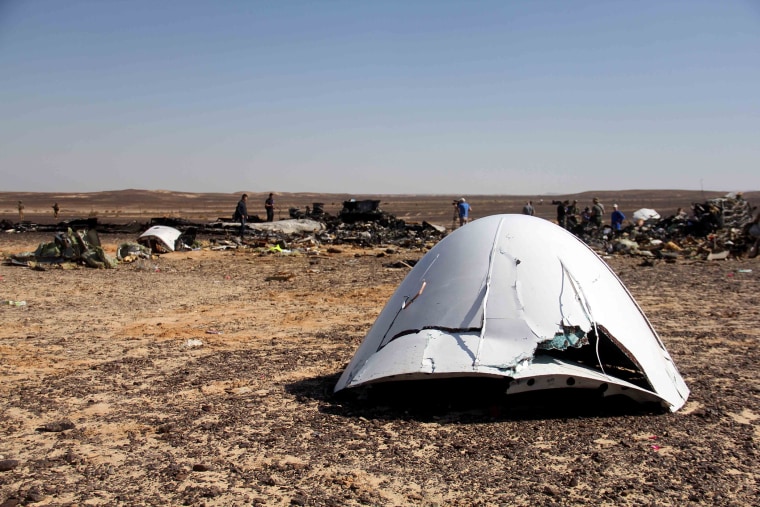CAIRO — Egypt has so far found no evidence of terrorism in the crash of a Russian passenger jet, the country's chief investigator said Monday.
A preliminary report into the Oct. 31 Metrojet crash said Egyptian investigators had not received any indication of any "illegal or terrorist act" in the disaster, according to a statement released on behalf of Captain Ayman El Mokaddem.
Russia believes an explosive device was placed aboard the Airbus 321, based on information from its intelligence services, and the local branch of ISIS has claimed responsibility.
Monday's statement did not address Moscow's theory, nor did it say whether the report made any initial conclusions.
Kremlin spokesman Dmitry Peskov declined to comment directly on the Egyptian statement, but told reporters in a conference call, "I can remind you of the conclusion of our experts from the special services, who came to the conclusion that it was a terrorist action."
The preliminary report has been shared with representatives of other countries involved in the investigation and the International Civil Aviation Organization (ICAO), the Egyptian statement said. "Cooperation and communication with them" is ongoing, it added.
"The committee did not receive until now any information indicating unlawful interference. Consequently, the committee continues its work regarding the technical investigation," it said.
It also listed the work carried out in collating the wreckage and the plane's maintenance history.
"The system group within the investigation committee spent about 30 hours in removing 38 computer units belonging to the airplane, in addition to two other computer units belonging to the engines from the wreckage at the accident site," it said. "The units have been transferred to Cairo for the purpose of thorough investigation by the specialized task groups."
The plane, carrying mostly Russian tourists, took off from the Red Sea resort of Sharm el-Sheikh and the crash has raised concerns about airport security. Both Russia and Britain have suspended flights to the resort, crippling Egypt's tourism industry.
In its claim of responsibility, ISIS said the bombing was in response to Russian airstrikes in Syria.
This story originally appeared on NBCNews.com
